Document Author
Year Published
Topic
- (-) Remove Self-Help Centers filter Self-Help Centers
- (-) Remove Strategic Planning filter Strategic Planning
- 100% Access to Justice (24) Apply 100% Access to Justice filter
- Trial Court Self-Help (21) Apply Trial Court Self-Help filter
- Research (13) Apply Research filter
- Best Practices for Self-Help Centers (12) Apply Best Practices for Self-Help Centers filter
- Reports, Evaluations, Best Practices, Surveys (11) Apply Reports, Evaluations, Best Practices, Surveys filter
- Courts (9) Apply Courts filter
- Linking a Self-Help Center to Other Services (9) Apply Linking a Self-Help Center to Other Services filter
- Reports (7) Apply Reports filter
- Ethics Education (6) Apply Ethics Education filter
- Forms (6) Apply Forms filter
- Simplification (6) Apply Simplification filter
- Libraries (5) Apply Libraries filter
- Managing a Self-Help Center (5) Apply Managing a Self-Help Center filter
- Plain Language & LEP (5) Apply Plain Language & LEP filter
- Allied Professionals (4) Apply Allied Professionals filter
- Articles & SRLN Briefs (4) Apply Articles & SRLN Briefs filter
- Forms (4) Apply Forms filter
- Technology (4) Apply Technology filter
- Unbundling (4) Apply Unbundling filter
- Evaluating a Self-Help Center (3) Apply Evaluating a Self-Help Center filter
- Plain Language (3) Apply Plain Language filter
- Triage (3) Apply Triage filter
- ATJ Commissions (2) Apply ATJ Commissions filter
- Clerk, Self-Help Center Staff, and Librarian Ethics (2) Apply Clerk, Self-Help Center Staff, and Librarian Ethics filter
- Conferences & Summits (2) Apply Conferences & Summits filter
- Judicial Ethics (2) Apply Judicial Ethics filter
- Justice Tech Entrepreneurs (2) Apply Justice Tech Entrepreneurs filter
- Legal Aid (2) Apply Legal Aid filter
- LEP and Access (2) Apply LEP and Access filter
- Presentations (2) Apply Presentations filter
- Scaling in Court Systems (2) Apply Scaling in Court Systems filter
- Tools for Evaluating Self-Help Programs and Services (2) Apply Tools for Evaluating Self-Help Programs and Services filter
- Triage & Service Portal (2) Apply Triage & Service Portal filter
- Administrative Agencies (1) Apply Administrative Agencies filter
- Attorney Ethics (1) Apply Attorney Ethics filter
- Automated Forms & E-Filing (1) Apply Automated Forms & E-Filing filter
- Best Practices (1) Apply Best Practices filter
- Evaluation (1) Apply Evaluation filter
- Funding (1) Apply Funding filter
- General Non-Profit Resources for Planning and Evaluation (1) Apply General Non-Profit Resources for Planning and Evaluation filter
- Human Centered Design (1) Apply Human Centered Design filter
- Impact of Self-Represented Litigant Innovations on Cost and Efficiency (1) Apply Impact of Self-Represented Litigant Innovations on Cost and Efficiency filter
- Judges (1) Apply Judges filter
- Private Bar (1) Apply Private Bar filter
- Regulatory Concerns (1) Apply Regulatory Concerns filter
- Starting a Self-Help Center (1) Apply Starting a Self-Help Center filter
- Surveys (1) Apply Surveys filter
- Trainer of the Trainer Materials / Curricula (1) Apply Trainer of the Trainer Materials / Curricula filter
State
- California (6) Apply California filter
- Maryland (3) Apply Maryland filter
- Michigan (2) Apply Michigan filter
- Minnesota (2) Apply Minnesota filter
- Utah (2) Apply Utah filter
- Alaska (1) Apply Alaska filter
- Idaho (1) Apply Idaho filter
- Missouri (1) Apply Missouri filter
- Montana (1) Apply Montana filter
Tags
Post date
Search results
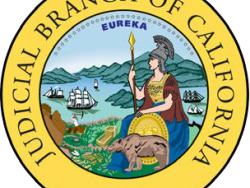
Weblinks: Elkins Family Law Task Force & Implementation Task Force (Judicial Branch of California 2010, 2013)
In Elkins v. Superior Court (2007) 41 Cal.4th 1337, the California court recommended that the Judicial Council of California establish a task force to “study and propose measures to assist trial courts in achieving efficiency and fairness in marital d ...
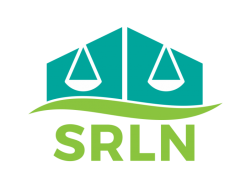
Tool: Self-Diagnostic Protocols & Solutions for Affordable Access to Justice Innovations (SRLN 2010)
Drawing upon a wide range of Best Practices (srln.org), approaches, tools and materials developed by the SRLN, this resource is designed to help courts identify and implement potential improvements in access and efficiency in as cost effective a manner a ...
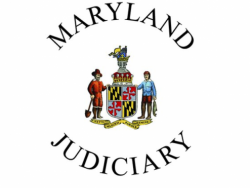
Report: Clearing a Path to Justice (MD Working Group on Self-Representation 2007)
This Report is a useful example for jurisdictions thinking about how to build analysis and support as they develop self-help services. From the table of contents: The Work Group on Self-Representation in the Maryland Courts................................ ...
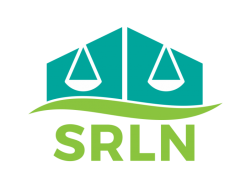
Survey: SRLN Tiers of Service Survey Tool (SRLN 2015)
The SRLN Tiers Survey was developed for states to conduct a quick tiered inventory of their court based self-help services. Tier 1 services are asynchronous (one-way), Tier 2 services are synchronous (two-way), and Tier 3 services integrate multiple provi ...
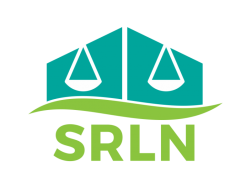
SRLN Brief: Rule 6.5- A Powerful Tool to Diversify Pro Bono and Transform Court Services (SRLN 2015)
Ethics rule 6.5 is a powerful tool to diversify pro bono programs and to transform court services because it allows unbundled lawyers to perform real time services in court-annexed programs without the onerous clerical burdens and limitations under the tr ...
Article: The Access To Justice “Sorting Hat” Towards A System Of Triage And Intake That Maximizes Access And Outcomes (Zorza 2012)
In this seminal article, Richard Zorza discusses the fact that we know little of the processes by which the millions of people who approach courts, legal aid intake systems, and hotlines are directed into them, or the access services they do or do not rec ...
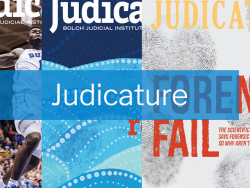
Article: Ensuring Access to Justice in Tough Economic Times (Broccolina & Zorza 2008)
This article outlines seven suggestions for the courts which require relatively small or easily found upfront investment and minor ongoing expenditures. This article first appeared in the November-December 2008 (Volume 92, Number 3) of JUDICATURE, the Jou ...
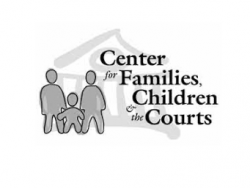
Article: Community Courts and Family (Chase, Alexander, Miller 2000)
The authors introduce the idea of a community court as an interaction among courts, social service agencies, and the community. They discuss several models, prominent among them the Midtown Community Court in Manhattan, before going on to apply community ...
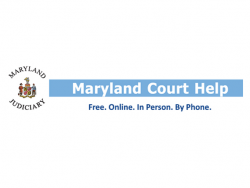
News: Self-Help Innovations in Maryland (News 2021)
The Maryland Court Help Center 2021 Provider Conference offered a glimpse into some of the cutting edge innovations in self-help in the COVID era. 1 Court Help Center Knowledge Base Maryland Court Help Providers have access to the Court Help Center Know ...
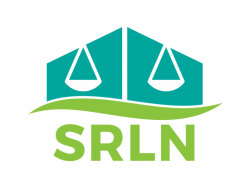
SRLN Brief: Intro to Design Thinking (SRLN 2017)
In the Access to Justice space, design thinkin g practices from the technology space are increasingly embraced to improve the way people access legal services and to improve and simplify the processes themselves. Reviewing practices around the country, we ...